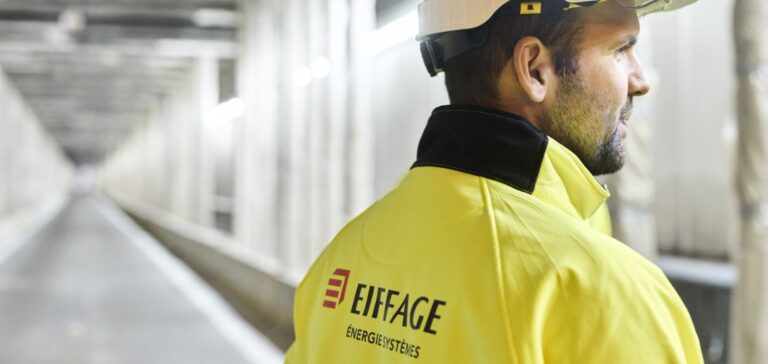GRDF has selected Eiffage Énergie Systèmes to implement and operate charging infrastructure for its electric vehicle fleet. The framework agreement signed provides for the installation of 1,050 charging points by the end of 2029, distributed across 126 sites throughout France.
A structured deployment schedule
The contract, concluded for three years and renewable twice for one year, is based on a gradual deployment of installations. In 2025, 70 charging points will be installed, followed by 140 in 2026. The next three years will see an additional 280 units annually, reaching the total planned volume.
Eiffage Énergie Systèmes will install alternating current (AC) charging stations of 7.4 kW, 11 kW, and 22 kW, as well as direct current (DC) stations of 25 kW, 50 kW, and 100 kW. These infrastructures are designed to meet the growing needs of GRDF, which currently operates a fleet of 6,500 vehicles.
A turnkey offer and maintenance commitment
The scope of Eiffage Énergie Systèmes’ intervention includes all necessary steps for the deployment of the charging stations: feasibility study, equipment supply, installation, commissioning, and integration into a supervision platform. Once in place, the infrastructure will benefit from preventive and corrective maintenance, with intervention times of 12 hours for remote diagnostics and 48 hours for service restoration in case of failure.
The We-Go platform will ensure the supervision and monitoring of maintenance operations, integrating data from computer-aided production management (GPAO) and computer-aided maintenance management (GMAO) systems. The goal is to optimize intervention planning and maintain a charging station availability rate above 98%.
Execution under strict deadlines
Each batch of the framework agreement will be executed within nine weeks from the receipt of the order by GRDF, including installation and final approval. This rapid execution relies on the mobilization of Eiffage Énergie Systèmes’ internal expertise, particularly from its New Mobility division, which oversees consultation and facility sizing.
With this agreement, GRDF continues to expand its charging network in line with the growing needs of its electric vehicle fleet. Meanwhile, Eiffage Énergie Systèmes strengthens its presence in the charging infrastructure market with a structured, multi-year project.






















